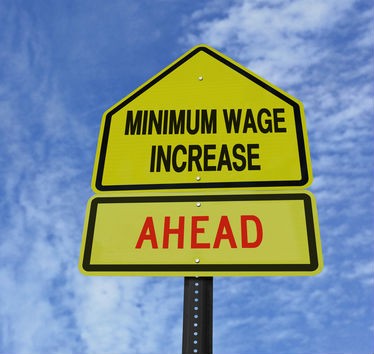California’s New Minimum Wage Law – What You Should Know
On April 4, 2016, Governor Brown signed into law Senate Bill 3, which steadily increases the minimum wage over the next several years until it reaches $15 per hour (unless the increases are suspended in any year due to certain economic conditions). Departing from previous practice, the new law provides for a different timetable for the minimum wage increases depending on the number of employees an employer has.
For employers with 26 or more employees, the minimum wage will increase as follows:
- On January 1, 2017, the minimum wage will increase to $10.50 per hour.
- On January 1, 2018, to $11.00 per hour.
- On January 1, 2019, to $12.00 per hour.
- On January 1, 2020 to $13.00 per hour.
- On January 1, 2021 to $14.00 per hour.
- On January 1, 2022, to $15.00 per hour.
For employers with 25 or less employees, the implementation is delayed at each step by one year, with the minimum wage remaining at $10 per hour through December 31, 2017. The minimum wage will then increase each year according to the schedule above, starting with an increase to $10.50 on January 1, 2018, and continuing until the minimum wage is $15 per hour effective January 1, 2023. Following the end of the scheduled increases (2022 and 2023, respectively), the law provides for further increases each year to account for inflation.
The less obvious change is the effect the new law will have on “exempt” employees, who are not entitled to overtime compensation. Typically, to qualify as an exempt employee under California law, the employer must compensate the employee a salary of at least two times the minimum wage for full time employment (40 hours per week). To maintain the exempt status, employers will need to ensure their exempt employees are paid at least twice the effective minimum wage. Failure to keep the employee’s salary at twice the minimum wage can result in the misclassification of the employee. This could potentially expose the employer to liability for unpaid overtime, accompanying penalties, and attorney’s fees.
If you have questions about any of these issues or other employment related questions, contact an attorney at Corren & Corren to discuss.
Related Posts
By accepting you will be accessing a service provided by a third-party external to https://www.correnlaw.com/





